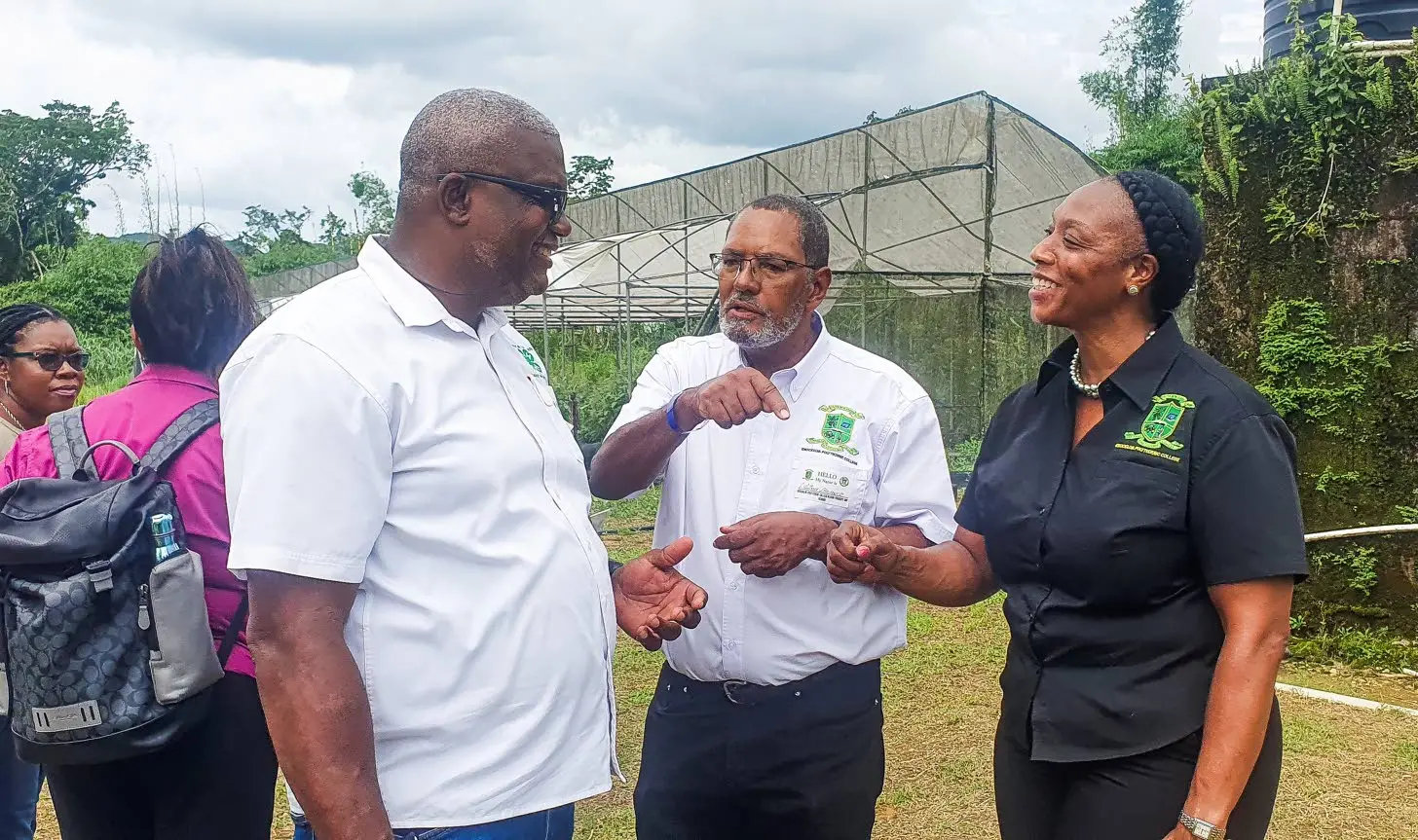
Help coming for Knockalva College
RAMBLE, Hanover — The Ministry of Education has indicated that well-needed funds will be injected into the development of the 84-year-old Knockalva Polytechnic College here.
Six years ago the institution was upgraded from an agricultural school. However, despite ongoing progress and achievements it faces challenges that hinder the training of students and its potential growth.
However, Minister of Education Fayval Williams has acknowledged that more needs to be done for the institution whose administrators have long appealed for help.
“Knockalva Polytechnic College has the potential to become a leading institution, not just locally but also on the global stage. However, to realise this potential we need to invest in the college’s infrastructure, research capabilities, and training facilities. A capital injection is critical at this point. We need modern laboratories, state-of-the-art equipment, and more robust research facilities to ensure that Knockalva continues to produce graduates who are not just ready for the workforce but also capable of innovation. With additional funding and support, Knockalva can strengthen its position as a hub for agricultural research and technical education in Jamaica, paving the way for breakthroughs in sustainable farming practices and environmental management,” Williams said, in a message read by Education Officer Lysetta Mayne during the Knockalva Polytechnic College Alumni Founders’ Day Reunion 2024 on September 28.
The minister said the college is capable of meeting the needs of western Jamaica and driving national development. However, she noted that the journey ahead will require collaboration between Government, private sector, and the local community.
“We have the foundation, we have the talent, and we have the determination. What we need now is the shared will to take this institution to the next level. Over the coming months, we will begin the planning and implementation of key initiatives designed to enhance the training and research capabilities here at Knockalva,” said the minister in her message.
She did not say the amount of funds to be injected nor did she provide a time frame for the project.
During the event, the institution’s International Alumni Association Chairman, Dr Gersham Nelson spoke of the need to support the school.
“We do not need to mince words. Knockalva has been neglected by the Ministry of Education; it has been neglected by its alumni and friends but that must change and now,” he urged.
During her presentation, past student and principal of the institution Natalie Wallace-Thompson pointed to some of the challenges faced.
“Knockalva Polytechnic College has faced numerous challenges, including ageing infrastructure, inadequate facilities, and limited resources. These issues not only hindered administrative functions but also affected the overall learning environment for students and staff. Where dormitories are concerned, structural damage, aesthetic concerns and abandoned dorms have significantly impacted student enrolment and retention,” she pointed out.
To retain students, the college fixed the dormitories. However, Wallace-Thompson noted that such an intervention is only temporary.
While the institution is capable of accommodating more than 300 students living on campus, only 48 are currently on roll. Students pay a tuition fee of $300,000 each year — the lowest tertiary fee that includes accommodation and food.
Despite the challenges, Wallace-Thompson thanked the Ministry of Education for the role it played in having buildings and dorms assessed. The institution currently sits on 260 acres of farmland. The administrative building occupies what used to be a Great House.
“I am delighted to report, as well, that based on the assessment of buildings on campus by the experts previously mentioned, we have been placed on the National Education Trust (NET) priority list to receive funding to rehabilitate our buildings,” revealed Wallace-Thompson.
The upgrades cannot come quickly enough. The principal described inadequately equipped STEM laboratories and classrooms which has posed significant challenges for students.
During a tour of the property, including what is supposed to be the biology, physics and chemistry labs, the state of the incomplete rooms became evident. Wallace-Thompson explained that because of these deficiencies students have to get up early in the morning to be transported to the College of Agriculture Science and Education (CASE) campus in Portland to use that facility.
“The inability of students to conduct experiments and practical work on-site hampers their understanding of theoretical concepts and diminishes their preparedness for careers in STEM fields. Increased costs, as travel to our sister institution, CASE, adds financial burdens on students, potentially discouraging enrolment and completion rates,” stated the principal of two years.
Wallace-Thompson also revealed that a Cabinet submission is currently undergoing critical review by the Ministry of Education & Youth. She said the move is aimed at marking a significant step in the institution’s evolution.
“The objective of our Cabinet submission includes expanding our curriculum to include more advanced technical and professional programmes that align with industry demands; securing additional financial resources from government and private sectors, ensuring sustainable growth and development; and elevating the status of our institution, thus attracting more students and faculty; while fostering stronger partnerships with industry stakeholders,” revealed Wallace-Thompson.
Even with the challenges faced, the institution has performed well academically.
“Despite the deficiencies in our educational resources, I am proud to report that since our transition to a polytechnic college, and the introduction of associate degree programmes, our dedicated instructors, through their hard work and commitment, have assisted in making possible the certification of over 70 students through the Council of Community Colleges of Jamaica and more than 60 students through the College of Agriculture, Science and Education. These accomplishments reflect our faculty’s unwavering dedication to student success, even in the face of challenges,” stated Wallace-Thompson.

























